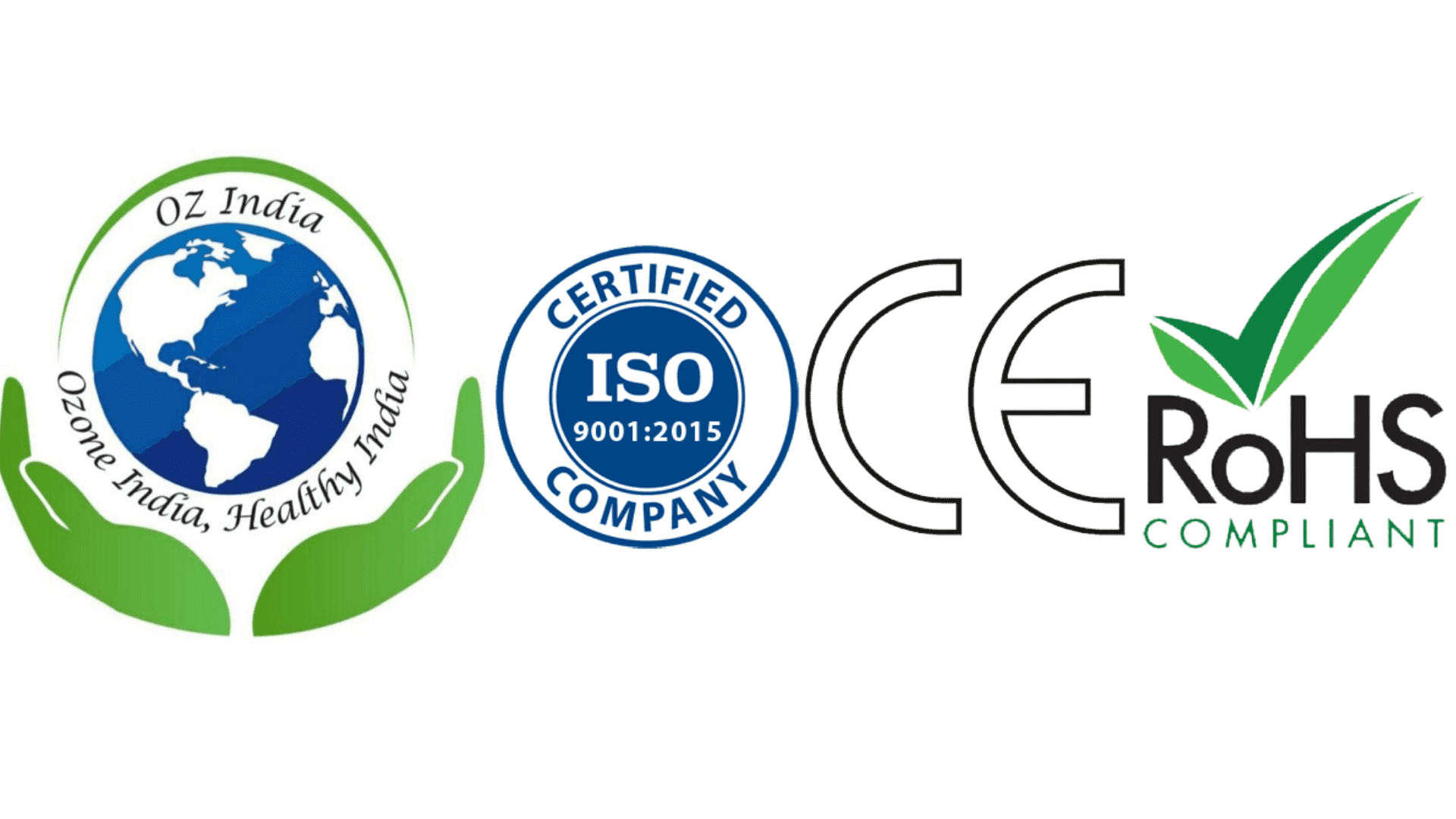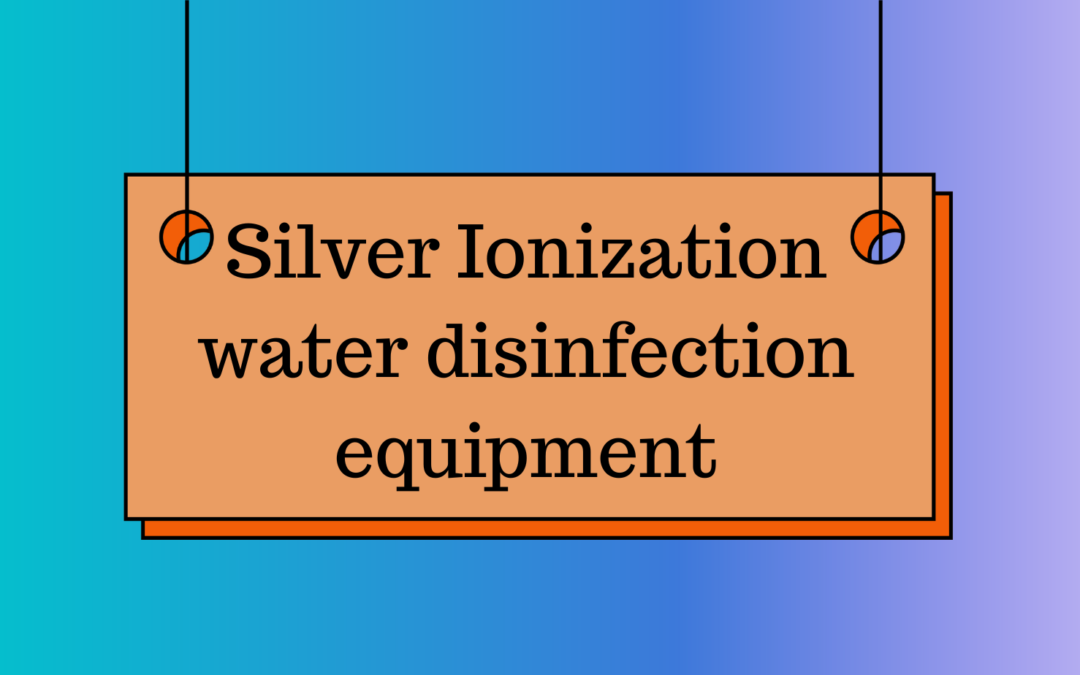A silver ionization system and ionization water treatment is a type of water purification system that uses silver ions to kill bacteria and other microorganisms. The silver ions are generated by passing an electrical current through a solution of silver nitrate. The silver ions then react with the bacteria and other microorganisms, killing them. Silver ionization is a water treatment technology that uses silver ions to kill bacteria, viruses, and other microorganisms. Silver ions are highly reactive and can damage the cell membranes of microorganisms, causing them to die.
Silver ionization systems are typically used to treat drinking water, but they can also be used to treat sewage water. Sewage water is a complex mixture of organic matter, inorganic matter, and microorganisms. It can contain a wide variety of pathogens, including bacteria, viruses, and parasites.
Silver ionization systems can be used to kill pathogens in sewage water, making it safe to discharge into the environment. Silver ionization systems are a safe and effective way to treat sewage water, and they have several advantages over other treatment methods.
How does the copper-silver ionization water disinfection system work?
Silver ions are highly reactive and can bind to the cell walls of bacteria and other microorganisms. This binding disrupts the cell membranes of the microorganisms, killing them. Silver ions are also effective against viruses and fungi. Silver ionization systems work by generating silver ions in water. The silver ions are then circulated through the sewage water, where they kill the pathogens.
The silver ions are generated by passing an electric current through a silver electrode. The current causes the silver atoms to release electrons, which become silver ions.
The silver ions are then circulated through the sewage water by a pump. The silver ions come into contact with the pathogens in the sewage water and kill them.
The silver ions are then removed from the sewage water by a filter. The filter traps the silver ions, and the clean water is then discharged into the environment.
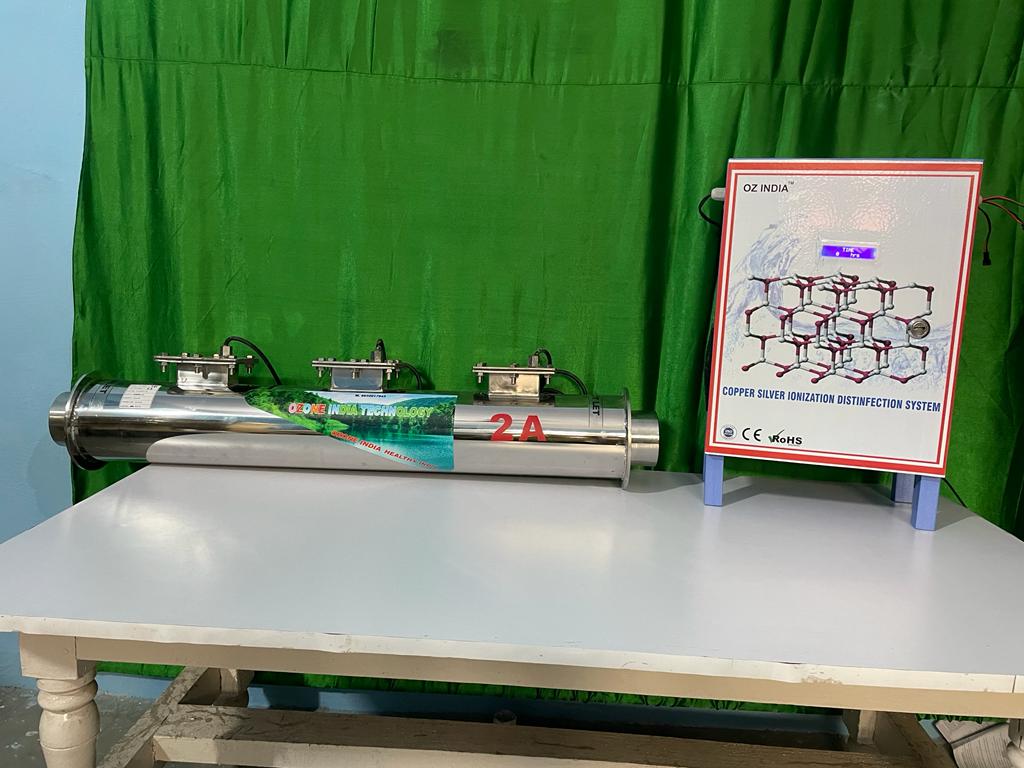
How effective is silver ionization water disinfection equipment?
Silver ionization and copper-silver disinfection method is a very effective method of water purification. It is effective against a wide range of bacteria, viruses, and fungi. Silver ionization is so effective that it is used in hospitals and other healthcare settings to disinfect water. Silver ionization is a process that uses silver ions to kill bacteria and other microorganisms in water. The silver ions are generated by an electrical current passing through a copper-silver alloy, and they react with the cell membranes of the microorganisms, killing them.
Silver ionization is effective against a wide range of bacteria, including E. coli, Salmonella, and Legionella. It is also effective against viruses and protozoa. One of the advantages of silver ionization is that it is a non-chemical method of disinfection. This means that it does not produce any harmful byproducts, and it is safe for use in drinking water. Copper silver ionization unit price depends on areas and water input.
Another advantage of silver ionization is that it is a continuous process. Once the system is installed, it will continue to disinfect the water as it flows through the system. This means that there is no need to add chemicals to the water regularly. Silver ionization is a cost-effective way to disinfect water. The initial cost of installation is relatively low, and the system requires little maintenance.
Overall, silver ionization is a safe, effective, and cost-effective method of water disinfection. It is a good choice for homes, businesses, and institutions that need to ensure the safety of their water supply.
The water treatment process
The water treatment process typically includes the following steps:
1 Pretreatment: This step removes large objects, such as leaves and twigs, from the water.
2 Coagulation: This step uses chemicals to clump together small particles in the water, making them easier to remove.
3 Flocculation: This step uses aeration to help the clumps of particles, called floc, grow larger.
4 Sedimentation: This step allows the floc to settle to the bottom of the tank, where it is removed.
5 Filtration: This step removes any remaining particles from the water.
6 Disinfection: This step kills any remaining bacteria or viruses in the water.
7 Fluoridation: In some cases, fluoride is added to the water to help prevent tooth decay.
8 Storage: The treated water is then stored in tanks until it is needed.
How can silver ionization be used to clean sewage water?
Silver ionization is a process that uses silver ions to disinfect water. The silver ions are generated by an electrical current, and they attach to the surface of bacteria and viruses, killing them. Silver ionization is a safe and effective way to disinfect water, and it can be used to clean sewage water.
The process of silver ionization works like this:
- The sewage water is pumped into a chamber where it is exposed to an electrical current.
- The electrical current generates silver ions, which are released into the water.
- The silver ions attach to the surface of bacteria and viruses, killing them.
- The disinfected water is then pumped out of the chamber and can be used for drinking, irrigation, or industrial purposes.
Silver ionization is a very efficient way to disinfect water. It can kill 99.99% of bacteria and viruses, even those that are resistant to other forms of disinfection, such as chlorine. Silver ionization is also a very safe process. The silver ions are not harmful to humans or animals, and they do not leave any harmful residues in the water.
Silver ionization is a cost-effective way to clean sewage water. The initial cost of installing a silver ionization system is high, but the operating costs are low. Silver ionization systems require little maintenance, and they do not need to be replaced often.
Silver ionization is a reliable way to clean sewage water. It can operate 24 hours a day, 7 days a week, and it is not affected by changes in temperature or pressure. Silver ionization systems are also very durable and can last for many years.
Overall, silver ionization is a safe, effective, and cost-effective way to clean sewage water. It is a reliable process that can be used to disinfect water for drinking, irrigation, or industrial purposes.
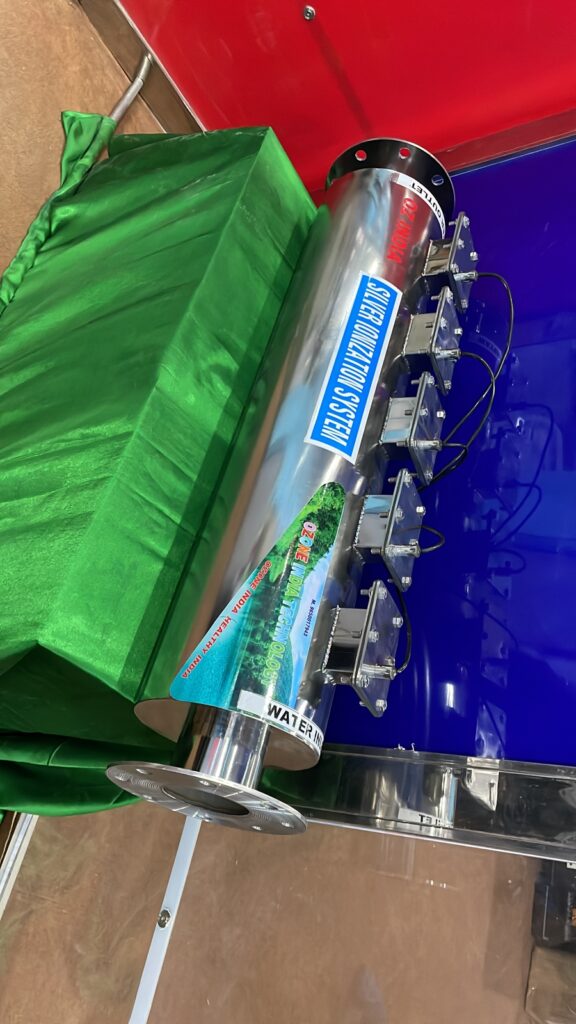
Here are some additional benefits of using silver ionization to clean sewage water:
- Silver ions are non-toxic and do not leave any harmful residues in the water.
- Silver ionization is a sustainable process that does not produce any harmful emissions.
- Silver ionization can be used to treat a wide range of water contaminants, including bacteria, viruses, protozoa, and parasites.
- Silver ionization is a relatively simple and easy-to-use process.
If you are looking for a safe, effective, and sustainable way to clean sewage water, silver ionization is a good option to consider.
Advantages of silver ionization systems
There are several benefits to using a silver ionization system to clean sewage water. Some of the benefits include:
Silver ionization is a non-toxic and environmentally friendly way to kill microorganisms.
Silver ionization is very effective at killing a wide variety of microorganisms.
Silver ionization is a low-maintenance system that requires little operator intervention.
Silver ionization can be used to treat a variety of water sources, including sewage water, drinking water, and swimming pool water.
Silver ionization is a very effective method of water purification.
Silver ionization is a safe method of water purification.
Silver ionization is a low-cost method of water purification.
Silver ionization is a maintenance-free method of water purification.
Disadvantages of silver ionization systems
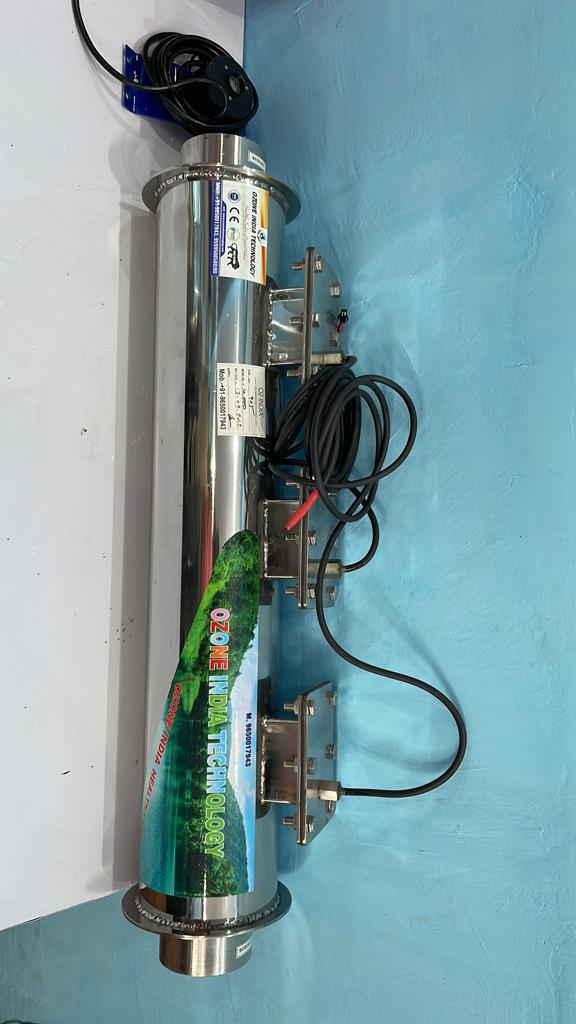
What are the drawbacks of using a silver ionization system?
There are a few drawbacks to using a silver ionization system. Some of the drawbacks include:
Silver ionization systems can be expensive to purchase and install.
Silver ionization systems can produce a small amount of silver ions that can leach into the water.
Silver ionization systems may not be effective at killing all microorganisms, such as spores.
Overall, silver ionization systems are a very effective way to kill microorganisms in water.
Silver ions can build up in the water, which can be harmful to humans and animals.
Silver ions can react with other chemicals in the water, which can create harmful byproducts.
Silver ionization systems can be expensive to purchase and install.
Conclusion
Silver ionization systems are a safe and effective method of water purification. They can be used to clean sewage water, making it safe to drink or use for other purposes. However, it is essential to note that silver ions can build up in the water, which can be harmful to humans and animals. It is also important to note that silver ionization systems can be expensive to purchase and install.
Additional information
If you are interested in using a silver ionization system to clean sewage water, there are a few things you should keep in mind. First, you need to make sure that the system is designed to handle the volume of sewage water you need to treat. Second, you need to make sure that the system is properly installed and maintained. Finally, you need to monitor the water quality to make sure that the silver ions are not building up to harmful levels.
If you are not sure whether or not a silver ionization system is right for you, you should consult with our expert, you can fill out the contact me form.
FAQs
Can silver be used to disinfect water?
Silver ionization systems are a safe and effective method of water purification. They can be used to clean sewage water, making it safe to drink or use for other purposes. However, it is essential to note that silver ions can build up in the water, which can be harmful to humans and animals. It is also important to note that silver ionization systems can be expensive to purchase and install.
What does silver ion do for water?
Silver ions are highly reactive and can bind to the cell walls of bacteria and other microorganisms. This binding disrupts the cell membranes of the microorganisms, killing them. Silver ions are also effective against viruses and fungi. Silver ionization systems work by generating silver ions in water. The silver ions are then circulated through the sewage water, where they kill the pathogens.
How do you purify water with silver?
Silver ionization is a process that uses silver ions to disinfect water. The silver ions are generated by an electrical current, and they attach to the surface of bacteria and viruses, killing them. Silver ionization is a safe and effective way to disinfect water, and it can be used to clean sewage water.
What is silver treatment disinfection?
A silver ionization system and ionization water treatment is a type of water purification system that uses silver ions to kill bacteria and other microorganisms. The silver ions are generated by passing an electrical current through a solution of silver nitrate. The silver ions then react with the bacteria and other microorganisms, killing them.
